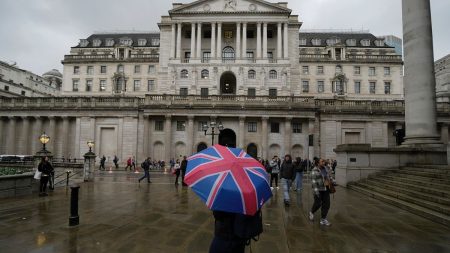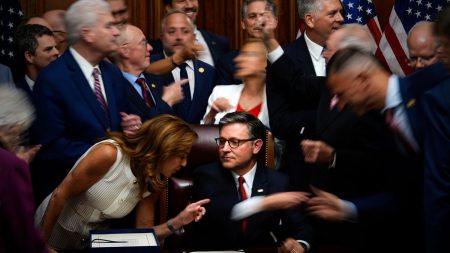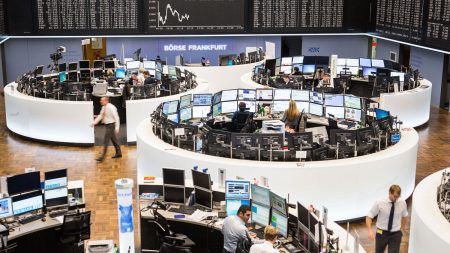The French financial markets have struggled significantly this year compared to their global counterparts, primarily due to ongoing political instability and governance challenges. The CAC 40 index, which serves as a benchmark for the French stock market, has seen a decline of 5.3% year to date, contrasting sharply with a 5.6% increase in the Euro Stoxx 600 and a more substantial 15% growth in Germany’s DAX. This downturn reflects broader concerns about France’s economic health amid a potential government collapse, which threatens to exacerbate the eurozone’s shaky economic landscape and further weaken the euro against major currencies.
Recent developments have emphasized the fragility of the current French government led by Prime Minister Michel Barnier. Following former President Emmanuel Macron’s decision to call a snap election, which resulted in a minority government, Barnier has sought to implement a budget plan aimed at addressing the country’s rising debt levels. However, his proposals, which involve spending cuts and tax hikes, face intense opposition from both the left-wing parties and the far-right National Rally. This political impasse has led to fears of a government overthrow, as opposition parties could initiate a no-confidence motion, aggravating the prevailing uncertainty in the markets.
In the context of the broader eurozone, France’s fiscal situation has raised alarming comparisons to Greece’s financial crisis. The projected deficit for France is expected to reach an alarming 6.1% of its GDP this year, exceeding the European Union’s stringent fiscal limits. Analysts have expressed skepticism regarding the government’s goal to reduce its debt-to-GDP ratio from the expected 112.4% in 2024—a figure that would be the second highest in the EU—by 5.1% in the following year. The downgrade of France’s credit rating by S&P Global has amplified these concerns, highlighting a persistent deficit projection that may linger until 2027.
The financial repercussions of this political turmoil extend to the banking sector, which has been notably affected due to investor apprehension about French public finances. Major financial institutions, including BNP Paribas, saw sharp declines in their stock prices, with shares hitting multi-month lows. The lackluster performance of French banking stocks starkly contrasts with the robust performance of the Euro Stoxx 600 banking index. Insurers like AXA and Credit Agricole also experienced losses, indicating a broad retreat in investor confidence toward French financial assets amid tightening political pressures.
The overarching concern surrounding the eurozone is further compounded by external factors such as Germany’s struggles in its automotive sector and potential tariff threats from the United States. These challenges, combined with France’s ongoing political instability, present a bleak outlook for the euro, which is poised to depreciate against the currencies of other major economies. The EUR/USD pairing has already dipped to a one-year low, reflecting market sentiment that anticipates continued weakness in the eurozone’s economic recovery.
In conclusion, the confluence of political instability, economic challenges, and external pressures has rendered the French financial markets vulnerable, marking a stark underperformance compared to global markets. The potential for governmental collapse underlines the urgent need for comprehensive fiscal reforms and heightened market confidence. As the situation unfolds, both investors and policymakers must navigate the complexities of the political landscape to foster stability and mitigate the risks posed to the broader eurozone economy and the euro itself.














